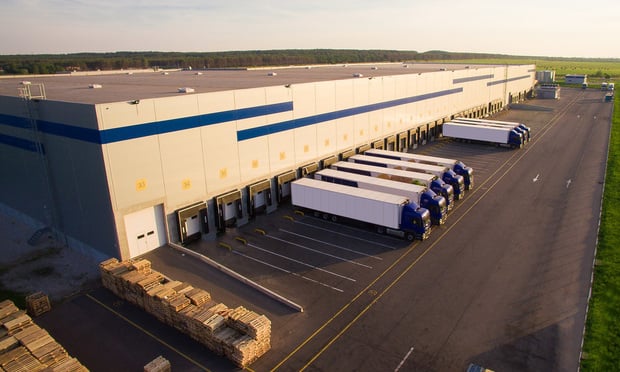
CHICAGO—Not every expansion of online retail means disruption to brick-and-mortar. Not according to Tom McGuinness, president and CEO of InvenTrust Properties Corp., headquartered in nearby Downers Grove. Yes, while web-based retail is redefining how people shop, forward-thinking retailers in the grocery space are responding and evolving their platforms to suit.
McGuinness holds up Amazon's reported $13.4-billion acquisition of Whole Foods as an example of this evolution. “As dominant as Amazon is in items such as books or clothing,” he points out, “the grocery business is very different, and the acquisition underscores the apparent challenges they faced in figuring out what Whole Foods already had—a workable grocery business model.”
Buying a going enterprise answered in one swoop such issues as last-mile delivery and how to reach “well-educated consumers with disposable income,” he says. Most Whole Foods are already positioned in neighborhoods where millennials cluster. “It's a win for the grocery business because it means that Amazon needed the grocer to develop a workable model,” says McGuinness. “So I don't see it as disruptive at all.”
McGuinness also finds it significant that, in the wake of the Whole Foods buy, Amazon has elected to pull its Amazon Fresh brand from certain markets. This is reportedly a sign of disruption within the online giant's walls, in what a recent Supermarket News item calls “some internal rationalization.”
Of course, none of this is to say that Whole Foods will be anything but successful under the Amazon flag. “You have to give Amazon an A-plus for creativity,” he says. But this is part of a movement, the evolution of online and brick-and-mortar grocery. In fact, many of those on the bleeding edge of this integration are traditional shops—names such as Safeway and Walmart—that “get” and embrace the new way of doing business.
Getting Personal
“If certain grocers are doing better than others,” McGuinness says, “it's because they provide the best of both worlds—the ability to have your dinner delivered as well as providing a great in-store experience. Whether they're doing it because it's just good business or they're reacting to Amazon doesn't really matter. All of them are becoming more familiar with their customer base.”
And they're doing so on a very personal level, thanks in part to Big Data, he says. That familiarity has evolved, from counting heads or fill-in surveys to monitoring likes and needs, zip codes and birthdays, all of which allow the retailer to tailor sales and promotions to their local customers. Add the extra amenity of personal shoppers, and grocers have all the communication bases covered.
“It's all about customer experience,” says the CEO, “at the store and on the web and even through old-school phone calls. It's that level of customer service that's going to be the big differentiator.”
Ultimately, McGuinness says he doesn't buy into the knee-jerk statement that internet sales are putting grocers out of business. The current dynamic is more complex and nuanced than that.
“Internet sales are a contributing factor,” he states, “but not the only one. Some of the regional grocery operators levered up a number of years ago and now have debt issues. They may not be savvy internet operators, but that's not their core issue.”
On the other hand, “If someone is a good operator, they understand the business, they have leverage under control and they embrace millennial shopping patterns, they'll be fine.” Some smaller operators may suffer, even the smart ones, he adds, due to insufficient “purchasing power to cover the cost of goods and services, which will be inherently more expensive than for a larger chain.” For those, “there will be mergers and acquisitions.”
But those who can handle that are well on their way to building—or reinforcing—brand loyalty. “Those are the locals and regionals that will definitely make it.”
Mission Statement
Part of the InvenTrust mission, McGuinness adds, is to help tenant retailers shore up that loyalty. “We have to think like our retailers,” he says. Toward that end, he lays out the firm's three-point approach to tenant relationships.
“Number One is to go where the jobs are,” he says. GlobeSt.com has covered the REIT's concentration of assets in the geographic “Smile” from DC Metro to Atlanta through Texas and on to Southern California. “We're investing in areas where the new jobs are. Those are the growth markets, no matter what happens to the economy.”
Number Two is to stick to the top performers. “We want the number one or two grocery operator in that individual market,” he says. “We want those dominant players who are gaining brand loyalty rather than losing it, who embrace the millennials as they enter their prime earning years and who also embrace the power of the internet.
“Finally,” he continues, “we try to partner with every single one of our retailers. What changes do we need to make to avail a retailer of curbside pickup? A couple of dollars spent today could help them grow and make that shopping center relevant for years and even decades to come. The more successful they are, the more successful we'll be.”
That partnership includes sitting with retailers' decision-makers at their corporate headquarters to “discuss their strategies and better understand their business logic.” It doesn't hurt that InvenTrust recently added former Target real estate head Scott Nelson to its board. And McGuinness promises more of that sort of appointment to come. “How better to think like a retailer?” he asks.
There will be more headlines of closures and mergers. “The weaker players will fall out,” says McGuinness. “When things like that happen, it's easy to think there must be a problem in the grocery business, rather than that retailer simply had its day in the sun. It's easy to forget that retail is an extremely competitive business. It's easy to forget that it's always evolving.”
© 2024 ALM Global, LLC, All Rights Reserved. Request academic re-use from www.copyright.com. All other uses, submit a request to [email protected]. For more information visit Asset & Logo Licensing.








